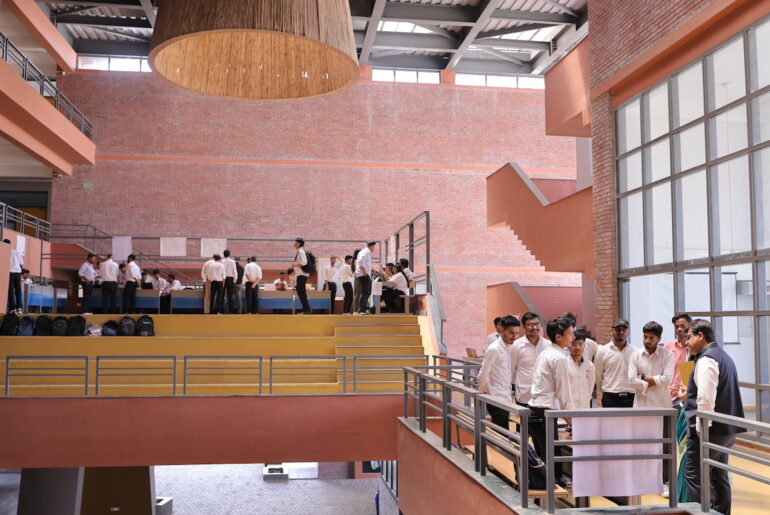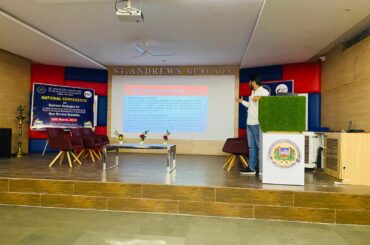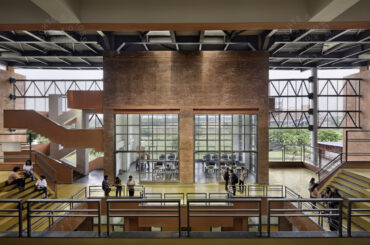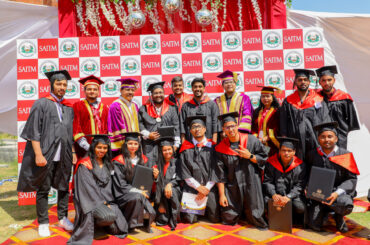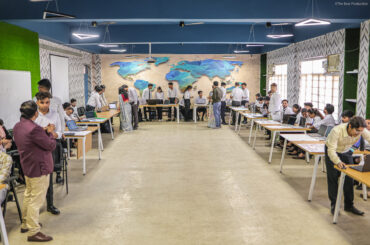B Tech How Many Years
A Bachelor of Technology (B.Tech) degree typically spans four years of full-time study. When considering B Tech How Many Years, students undergo rigorous coursework and hands-on training designed to equip them with the technical knowledge and practical skills necessary for careers in engineering and technology.
The program is divided into eight semesters, with each semester covering various subjects related to the chosen specialization, such as computer science, electrical engineering, mechanical engineering, civil engineering, or information technology.
In addition to theoretical classes, students engage in laboratory work, internships, and project-based learning to gain real-world experience.
The curriculum often includes a mix of core engineering subjects, elective courses, and general education subjects. When considering B Tech How Many Years, this blend ensures a well-rounded education that prepares graduates for diverse career opportunities in the tech industry.
Some of the most opted courses in India and St. Andrews college or different Engineering college or Management colleges are as follows:-
- Btech
- Btech CSE
- Btech ETCE
- MTech
- BCA
- BBA
- MBA
- MCA
- DPharma – St. Andrews College of Pharmacy
- BPharma – St. Andrews College of Pharmacy
- BArch – St. Andrews College of Architecture
Introduction to B tech
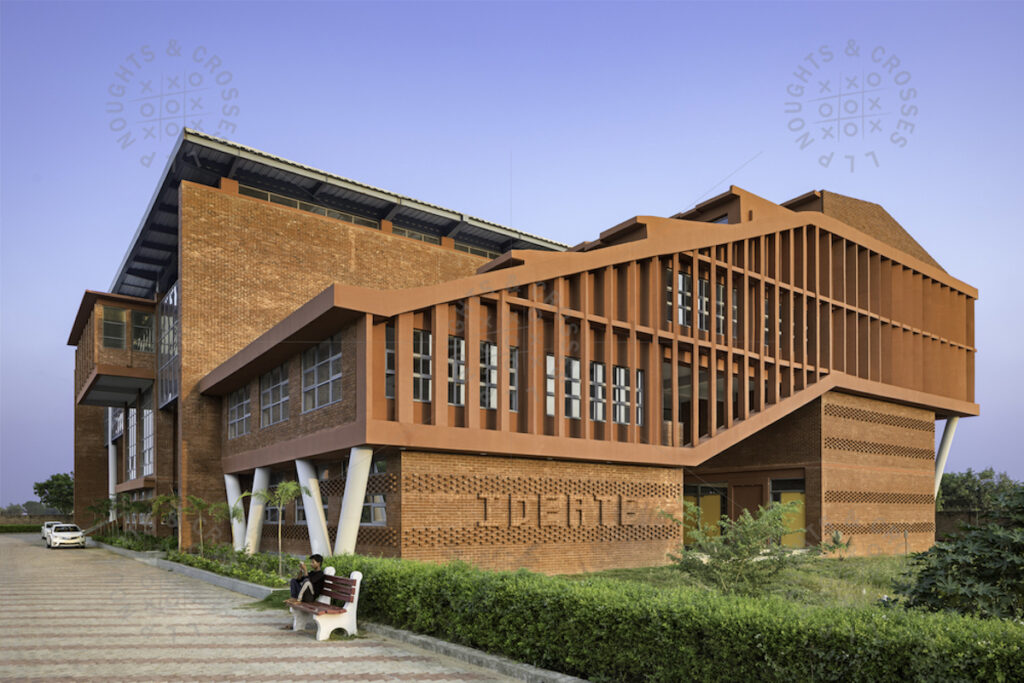
A Bachelor of Technology (BTech) is an undergraduate academic degree awarded in the field of engineering and technology. This program typically spans four years and is designed to provide students with a strong foundation in various engineering disciplines, technical skills, and industry-relevant knowledge.
BTech courses are part of a broader category of tech courses that include various engineering and technology disciplines. When considering B Tech How Many Years, you’ll find specializations such as Computer Science, Information Technology, Mechanical Engineering, Civil Engineering, Electrical Engineering, and more.
Overview
Objective
To equip students with theoretical knowledge and Applied skills in engineering and technology.
Duration
Four years, divided into eight semesters.
Specializations
Various branches including Computer Science, IT, Mechanical, Civil, Electrical, Electronics, and more. These specializations are offered by various tech colleges across the country, each providing unique opportunities and resources for students. Private institutes contribute significantly to the quality of engineering education by offering diverse specializations and state-of-the-art infrastructure.
Curriculum
Combines core engineering subjects, elective courses, lab work, projects, and internships.
Key Features
Comprehensive Curriculum
Includes subjects like mathematics, physics, and chemistry in the initial semesters, followed by specialized courses in the chosen field.
Hands-On Learning
Emphasis on laboratory work, workshops, and practical projects.
Industry Exposure
Opportunities for internships, industrial training, and live projects.
Skill Development
Focuses on both technical skills (coding, data analysis, system design) and soft skills (communication, teamwork, problem-solving).
Research Opportunities
Encourages participation in research projects, conferences, and technical symposiums.
Importance
A BTech degree is highly regarded in the engineering and technology sectors, offering excellent Career opportunities. Graduates can pursue various roles in engineering, research, development, and management. The program also provides a strong foundation for further studies such as MTech, MBA, or other specialized certifications.
BTech Course Duration
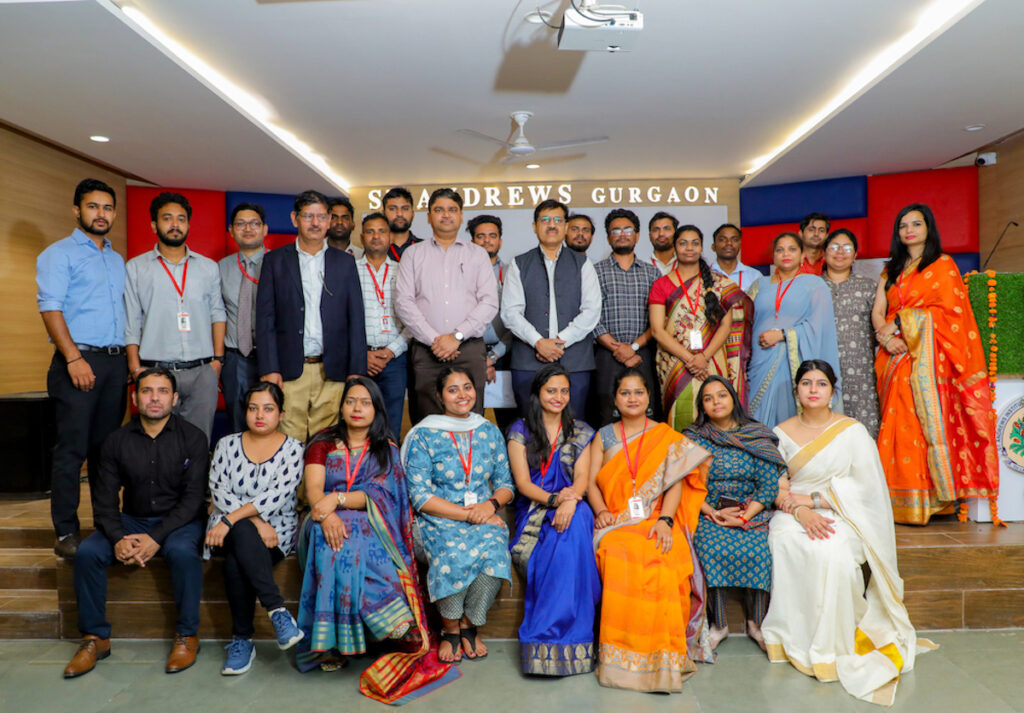
A Bachelor of Technology (BTech) degree is typically designed to be completed over a span of four years. Both government and private btech colleges offer these four-year programs, each with its own set of advantages and resources.
This duration is divided into eight semesters, with each academic year comprising two semesters. When considering B Tech How Many Years, the structured four-year curriculum plays a crucial role in providing comprehensive engineering education. Here is a detailed breakdown of the course duration and structure:
Total Duration
Four Years
The standard duration for a BTech course is four years. This is the typical time frame for completing all required coursework, lab work, projects, and internships.
Semester System
Eight Semesters
The four-year course is divided into eight semesters, each lasting approximately six months. This system allows for a balanced distribution of subjects and practical work over the course duration.
Semester-Wise Breakdown of BTech Course
First Year (Semester 1 and 2)
Focus
Foundation courses in mathematics, physics, chemistry, and introductory engineering subjects.
Objective
To build a strong base in basic sciences and preliminary engineering principles.
Second Year (Semester 3 and 4)
Focus
Core engineering subjects specific to the chosen branch (e.g., Computer Science, Mechanical, Civil, Electrical).
Objective
To provide in-depth knowledge of fundamental engineering concepts and techniques.
Third Year (Semester 5 and 6)
Focus
Advanced subjects, electives, and beginning of specialization courses.
Objective
To deepen technical expertise and allow for elective choices that align with career goals.
Fourth Year (Semester 7 and 8)
Focus
Specialized subjects, project work, internships, and industrial training.
Objective
To integrate theoretical knowledge with practical experience, preparing students for professional roles or higher studies.
Components of the Curriculum
Core Subjects
Essential subjects related to the specific engineering discipline.
Electives
Courses that enable students to customize their education according to their interests and career goals.
Laboratory Work
Practical sessions designed to complement theoretical learning.
Projects
Individual or group projects that foster problem-solving and innovation.
Internships
Industrial training programs to gain real-world experience.
Seminars and Workshops
Sessions to enhance soft skills and technical knowledge.
Examinations and Assessments
Mid-Semester Exams
Typically held in the middle of each semester to assess ongoing learning.
End-Semester Exams
Comprehensive exams conducted at the end of each semester.
Continuous Assessment
Includes quizzes, assignments, lab work, and project evaluations.
Flexibility and Extensions
Flexible Learning
Some institutions offer flexible learning schedules, including part-time options.
Extensions
In certain cases, students may be granted extensions beyond the standard four years to complete their degree requirements, often due to personal or academic reasons.
Eligibility Criteria for BTech Admission

To pursue a Bachelor of Technology (BTech) degree, candidates must meet specific eligibility criteria, which generally include academic qualifications, entrance exam results, and other requirements set by the respective institutions.
Below is a detailed explanation of the eligibility criteria for BTech admission:
Academic Qualifications
Minimum Educational Requirement
10+2 (Higher Secondary Education), Candidates must have completed their 10+2 or equivalent examination from a recognized board.
Mandatory Subjects
Physics, Chemistry, and Mathematics (PCM), Candidates must have studied and passed Physics, Chemistry, and Mathematics in their 10+2.
English
Some institutions also require candidates to have studied and passed English.
Minimum Marks Requirement
General Category
Candidates should have secured a minimum aggregate score of 50-60% in PCM in their 10+2, though this percentage may vary slightly depending on the institution.
Reserved Categories (SC/ST/OBC)
Relaxation in the minimum percentage is often provided, typically around 5-10% lower than the general category requirement.
Entrance Exams
National-Level Exams
JEE Main (Joint Entrance Examination Main)
Conducted by the National Testing Agency (NTA), JEE Main is a common entrance exam for admission to NITs, IIITs, and other centrally funded technical institutions. It also serves as a qualifying exam for JEE Advanced.
JEE Advanced
For admission to the prestigious Indian Institutes of Technology (IITs). Candidates must qualify JEE Main to appear for JEE Advanced.
State-Level Exams
Various states conduct their own entrance exams for admission to state engineering colleges, such as MHT CET (Maharashtra), WBJEE (West Bengal), KCET (Karnataka), etc.
Institution-Specific Exams
Some private universities conduct their own entrance examinations, such as BITSAT (Birla Institute of Technology and Science Admission Test), VITEEE (Vellore Institute of Technology Engineering Entrance Exam), etc.
Age Limit
General Criteria
Candidates must typically be at least 17 years old at the time of admission.
Upper Age Limit
Some institutions may have an upper age limit, though this is not very common.
Domicile Requirements
State Quotas
For state-level entrance exams, candidates might need to meet specific domicile requirements, such as being a resident of the state for a certain number of years.
Regional Reservations
Certain institutions may have reservations or quotas for local or regional candidates.
Other Requirements
Medical Fitness
Some institutions require candidates to submit a medical fitness certificate as part of the admission process.
Character Certificate
A character certificate from the school last attended is often required to ensure the candidate’s good conduct.
Specializations in Bachelor of Technology
The Bachelor of Technology (BTech) program offers a variety of specializations, each focusing on a specific area of engineering and technology. These specializations allow students to gain in-depth knowledge and skills tailored to their career interests and industry demands. Offering diverse specializations enhances the quality of engineering education by meeting industry-specific standards and demands. These specializations are offered by top engineering colleges, known for their academic excellence and industry connections.
Here’s a detailed explanation of some popular BTech specializations:
Computer Science and Engineering (CSE)
Core Subjects
Programming, Data Structures, Algorithms, Computer Networks, Operating Systems, Database Management Systems.
Elective Topics
Artificial Intelligence, ML, Cybersecurity, Data Science, Cloud Computing.
Career Prospects
Software Developer, Systems Analyst, Network Engineer, Data Scientist, IT Consultant.
Information Technology (IT)
Core Subjects
Information Systems, Application Development, Web Technologies, Network Security, Database Management.
Elective Topics
E-Commerce, Internet of Things (IoT), Big Data Analytics, IT Project Management.
Career opportunities
IT Manager, Systems Administrator, Cybersecurity Analyst, Web Developer, IT Consultant.
Electronics and Communication Engineering (ECE)
Core Subjects
Digital Electronics, Analog Circuits, Communication Systems, Microprocessors, VLSI Design.
Elective Topics
Embedded Systems, Wireless Communication, Signal Processing, Robotics, Nanotechnology.
Career opportunities
Electronics Engineer, Communication Engineer, Embedded Systems Developer, VLSI Design Engineer, Research Scientist.
Mechanical Engineering
Core Subjects
Thermodynamics, Fluid Mechanics, Mechanics of Materials, Manufacturing Technology, Machine Design.
Elective Topics
Automotive Engineering, Aerospace Engineering, Robotics, Mechatronics, Energy Systems.
Career opportunities
Mechanical Engineer, Design Engineer, Manufacturing Engineer, Automotive Engineer, Project Manager.
Electrical Engineering
Core Subjects
Circuit Theory, Control Systems, Electrical Machines, Power Systems, Electronics.
Elective Topics
Renewable Energy, Smart Grid Technology, Power Electronics, Electric Vehicles, Instrumentation.
Career opportunities
Electrical Engineer, Power Systems Engineer, Control Systems Engineer, Renewable Energy Consultant, Instrumentation Engineer.
Civil Engineering
Core Subjects
Structural Analysis, Construction Materials, Geotechnical Engineering, Transportation Engineering, Environmental Engineering.
Elective Topics
Urban Planning, Water Resources Engineering, Earthquake Engineering, Sustainable Construction.
Career Prospects
Civil Engineer, Structural Engineer, Environmental Engineer, Urban Planner, Construction Manager.
Chemical Engineering
Core Subjects
Chemical Process Calculations, Fluid Mechanics, Chemical Reaction Engineering, Process Dynamics and Control, Thermodynamics.
Elective Topics
Petrochemical Engineering, Biochemical Engineering, Environmental Engineering, Material Science.
Career opportunities
Chemical Engineer, Process Engineer, Petrochemical Engineer, Environmental Consultant, Research Scientist.
Aerospace Engineering
Core Subjects
Aerodynamics, Aircraft Structures, Propulsion, Flight Mechanics, Avionics.
Elective Topics
Spacecraft Design, Aeroelasticity, UAV Technology, Rocket Propulsion.
Career opportunities
Aerospace Engineer, Avionics Engineer, Flight Test Engineer, Spacecraft Designer, Research Scientist.
Biotechnology Engineering
Core Subjects
Biochemistry, Molecular Biology, Genetics, Bioinformatics, Bioprocess Engineering.
Elective Topics
Pharmaceutical Biotechnology, Agricultural Biotechnology, Environmental Biotechnology, Genetic Engineering.
Career Prospects
Biotechnologist, Research Scientist, Bioprocess Engineer, Clinical Research Associate, Bioinformatics Specialist.
Automobile Engineering
Core Subjects
Automotive Engines, Vehicle Dynamics, Automotive Electronics, Manufacturing Processes, Design of Automotive Components.
Elective Topics
Electric Vehicles, Hybrid Vehicles, Automotive Safety, Vehicle Aerodynamics.
Career Prospects
Automobile Engineer, Design Engineer, Production Engineer, Quality Control Engineer, R&D Engineer.
Importance of Specializations
Specializations in BTech are crucial as they:
Tailor Education
Allow students to focus on areas of interest, making their education more relevant and engaging.
Enhance Career Prospects
Equip students with specialized skills and knowledge, increasing their employability and career growth opportunities.
Meet Industry Demands
Align academic programs with current industry trends and requirements, ensuring graduates are well-prepared for the job market.
Promote Innovation
Encourage students to delve deeper into specific fields, fostering innovation and research.
Choosing the Right Specialization
When selecting a specialization, students should consider
Interests and Strengths
Choose a field that aligns with personal interests and strengths.
Career Goals
Consider long-term career objectives and the job market for the chosen specialization.
Industry Trends
Stay informed about emerging technologies and industry demands.
Institutional Offerings
Evaluate the quality and reputation of the institution’s program in the chosen specialization.
BTech Fees in India
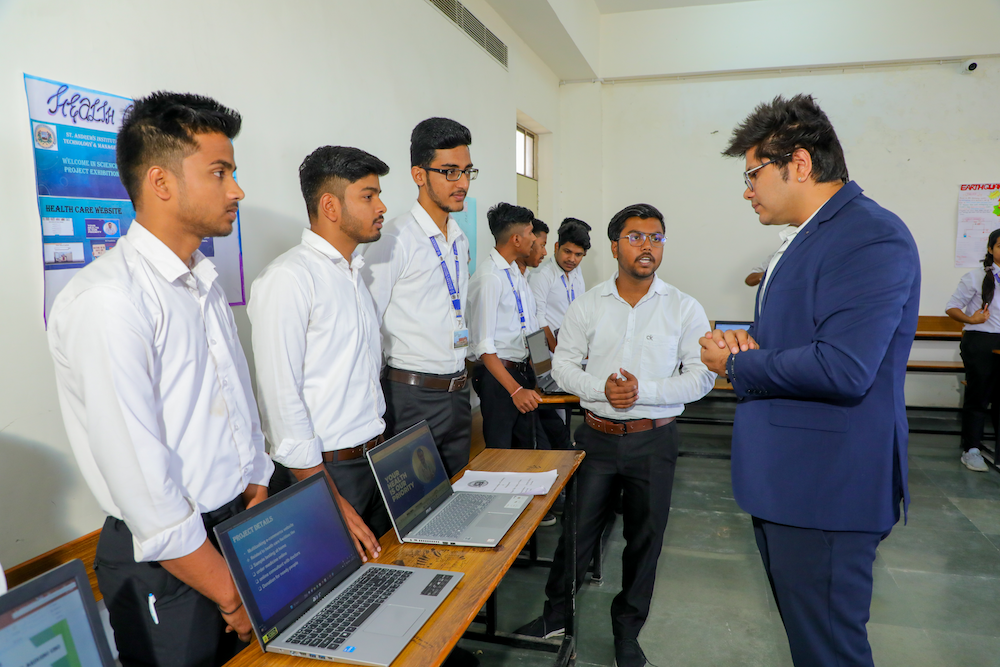
The fees for Bachelor of Technology (BTech) programs in India vary widely depending on the type of institution (government or private), its reputation, location, and other factors.
Below is a detailed breakdown of BTech fees across different categories of institutions:
Government Institutions
Indian Institutes of Technology (IITs)
Tuition Fees
Approximately ₹2,00,000 to ₹2,50,000 per year.
Other Fees
Hostel, mess, library, and other miscellaneous charges can add up to an additional ₹50,000 to ₹1,00,000 per year.
Scholarships and Financial Aid
Various scholarships are available for meritorious and economically disadvantaged students.
National Institutes of Technology (NITs)
Tuition Fees
Approximately ₹1,25,000 to ₹1,75,000 per year.
Other Fees
Additional costs for hostel, mess, and other facilities range from ₹30,000 to ₹60,000 per year.
Scholarships and Financial Aid
Numerous scholarships and fee waivers are offered based on merit and need.
St. Andrews Technology and Management, Gurgaon
Tuition Fees
Approximately ₹98,500 per year.
Other Fees
Hostel, mess, library, and other miscellaneous charges can add up to an additional ₹60,000 to ₹1,50,000 per year.
Scholarships and Financial Aid
Various scholarships are available for meritorious and economically disadvantaged students.
State Government Engineering Colleges
Tuition Fees
Typically range from ₹40,000 to ₹1,00,000 per year.
Other Fees
Hostel and other fees can add up to ₹20,000 to ₹50,000 per year.
Scholarships and Financial Aid
State-specific scholarships and central government scholarships are available.
Private Institutions
Tuition Fees
Approximately ₹2,00,000 to ₹4,00,000 per year.
Other Fees
Hostel, mess, and other charges can add an additional ₹50,000 to ₹1,00,000 per year.
Scholarships and Financial Aid
Many private institutions offer scholarships based on entrance exam scores, merit, and financial need.
Deemed Universities
Tuition Fees
Typically range from ₹2,00,000 to ₹3,50,000 per year.
Other Fees
Additional costs for hostel, mess, and other facilities can be around ₹40,000 to ₹80,000 per year.
Scholarships and Financial Aid
Various merit-based and need-based scholarships are offered.
Factors Affecting BTech Fees
Institution Type
Government colleges generally have lower fees compared to private colleges.
Reputation and Ranking
Higher-ranked institutions tend to have higher fees due to better infrastructure and faculty.
Location
Colleges in metropolitan cities may have higher fees due to higher living costs.
Facilities and Infrastructure
Colleges with advanced labs, research facilities, and modern infrastructure may charge higher fees.
Scholarships and Financial Aid
Availability of scholarships can significantly reduce the financial burden.
Scholarships and Financial Assistance
Many institutions offer scholarships and financial aid to help students manage the cost of education. These include:
Merit-Based Scholarships
Based on academic performance in entrance exams and school exams.
Need-Based Scholarships
For economically disadvantaged students.
Government Scholarships
Provided by central and state governments.
Institutional Scholarships
Offered by individual colleges based on various criteria.
Top BTech Colleges in India
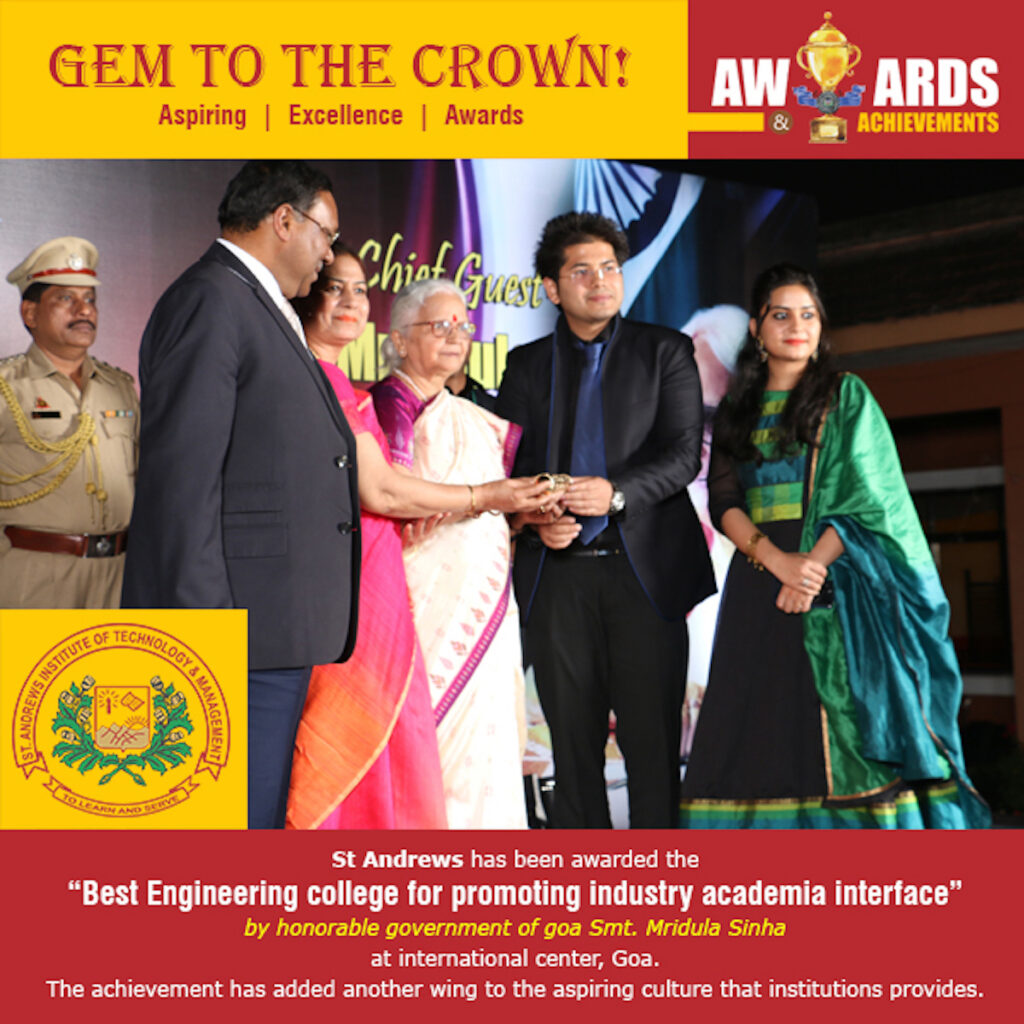
India is home to numerous prestigious engineering institutions offering Bachelor of Technology (BTech) programs. These colleges are renowned for their academic excellence, research facilities, faculty, and placement records. Top BTech colleges in India are recognized for their contributions to engineering education through their academic excellence, research facilities, and industry connections.
Below is a detailed overview of some of the top BTech colleges in India, including their features, specializations, and key highlights:
Indian Institutes of Technology (IITs)
IIT Bombay
Location
Mumbai, Maharashtra
Highlights
Consistently ranked among the top engineering institutes globally, renowned for research, and strong industry connections. Offers a wide range of specializations.
Notable Alumni
N. R. Narayana Murthy (Infosys), Arvind Krishna (IBM)
IIT Delhi
Location
New Delhi
Highlights
Known for its rigorous academic programs, state-of-the-art infrastructure, and strong emphasis on research and innovation. Offers a broad range of engineering specializations.
Notable Alumni
Raghuram Rajan (Former RBI Governor), K. Radhakrishnan (Former ISRO Chairman)
IIT Kanpur
Location
Kanpur, Uttar Pradesh
Highlights
Renowned for its research-oriented approach, excellent faculty, and robust industry links. Offers a variety of specializations with a focus on cutting-edge technology.
Notable Alumni
Vinod Dham (Father of Pentium Processor), Rajeev Suri (CEO of Nokia)
IIT Madras
Location
Chennai, Tamil Nadu
Highlights
Known for its strong academic programs, vibrant campus life, and emphasis on research and entrepreneurship. Offers numerous specializations in engineering.
Notable Alumni
N. S. Raghavan (Co-founder of Infosys), K. Radhakrishnan (Former ISRO Chairman)
IIT Kharagpur
Location
Kharagpur, West Bengal
Highlights
One of the oldest IITs, known for its large campus, diverse programs, and emphasis on research and development. Offers a wide array of engineering specializations.
Notable Alumni
Arundhati Bhattacharya (Former SBI Chairperson), Rajiv Kumar (NITI Aayog Vice Chairman)
National Institutes of Technology (NITs)
NIT Trichy (Tiruchirappalli)
Location
Tiruchirappalli, Tamil Nadu
Highlights
Highly regarded for its engineering courses, research facilities, and strong placement records. Offers a range of specializations.
Notable Alumni
V. K. Aatre (Former DRDO Chief), K. S. R. Anjaneyulu (Founder of Indus Technology)
NIT Warangal
Location
Warangal, Telangana
Highlights
Known for its excellent faculty, research-oriented programs, and strong industry connections. Offers diverse engineering specializations.
Notable Alumni
K. R. S. Narayanan (Former President of India), G. R. Gopinath (Founder of Air Deccan).
NIT Surathkal
Location
Surathkal, Karnataka
Highlights
Renowned for its engineering courses, vibrant campus life, and research facilities. Offers various specializations.
Notable Alumni
A. S. Kiran Kumar (Former ISRO Chairman), Anurag Jain (CEO of Jain Irrigation Systems)
NIT Rourkela
Location
Rourkela, Odisha
Highlights
Known for its focus on research, strong academic programs, and industry collaboration. Offers a wide range of specializations.
Notable Alumni
Debi Prasad Dhal (CFO of SREI Infrastructure Finance), K. S. R. Anjaneyulu (Founder of Indus Technology)
NIT Durgapur
Location
Durgapur, West Bengal
Highlights
Offers strong engineering courses with a focus on research and development. Known for its robust placement records.
Notable Alumni
Jitendra Kumar (Founder of E-Procurement Technologies Ltd.), H. K. Mangal (Former Head of ISRO’s Gaganyaan Mission)
St. Andrews Institute of Technology and Management
Location
Gurgaon
Highlights
Offers strong engineering programs with a focus on research and development. Known for its robust placement records.
Top Private Engineering Colleges
Vellore Institute of Technology (VIT)
Location
Vellore, Tamil Nadu
Highlights
Renowned for its strong academic programs, industry connections, and research facilities. Offers various specializations in engineering.
Notable Alumni
G. V. Prakash (Music Composer), P. S. Sreedharan (Metro Man)
Location
Greater Noida, Uttar Pradesh
Highlights
Offers high-quality education with a focus on research and innovation. Known for its strong industry connections and diverse engineering specializations.
Notable Alumni
Shiv Nadar (Founder of HCL), K. P. Singh (Chairman of DLF)
St. Andrews Institute of Technology and Management
Location
Gurgaon
Highlights
Offers strong engineering programs with a focus on research and development. Known for its robust placement records.
BTech Curriculum and Subjects
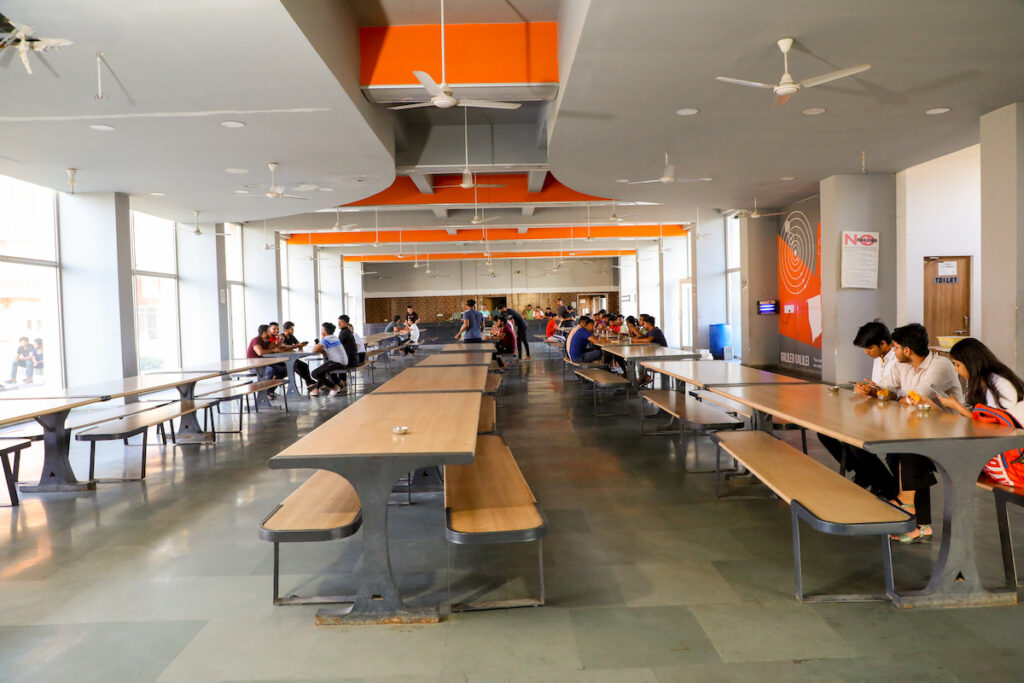
The Bachelor of Technology (BTech) program is structured to provide a comprehensive education in engineering, combining theoretical knowledge with practical skills.
The curriculum typically spans four years, divided into eight semesters. It includes a blend of core subjects, elective courses, and hands-on projects.
First Year: Foundation and Core Concepts
Mathematics I & II
Covers calculus, algebra, and differential equations. Fundamental for understanding engineering problems and solutions.
Physics I & II
Focuses on classical mechanics, electromagnetism, and optics. Provides a scientific foundation essential for various engineering applications.
Chemistry
Introduces chemical principles, materials science, and their applications in engineering.
Engineering Graphics
Teaches technical drawing, 2D and 3D visualization, and CAD tools, crucial for design and communication in engineering.
Basic Electrical Engineering
Covers electrical circuits, components, and their applications.
Introduction to Computing
Provides foundational knowledge in programming languages, data structures, and algorithms.
Workshop Practices
Hands-on experience with mechanical and electrical tools, and fabrication techniques.
Second Year: Core Engineering Subjects
Mathematics III
Advanced topics in mathematics, such as complex variables and partial differential equations.
Data Structures and Algorithms
Techniques for organizing, managing, and processing data efficiently.
Digital Electronics
Study of digital circuits, logic gates, and microprocessors.
Computer Organization and Architecture
Understanding CPU architecture, memory hierarchy, and I/O systems.
Object-Oriented Programming
Principles of object-oriented design and programming languages like C++ or Java.
Engineering Mechanics
Analysis of forces, moments, and equilibrium in mechanical systems.
Thermodynamics
Study of energy, heat transfer, and thermodynamic cycles.
Third Year: Specialized Core Subjects and Electives
Operating Systems
Concepts of process management, memory management, and file systems.
Database Management Systems
Techniques for designing and managing databases, including SQL.
Computer Networks
Study of network protocols, topologies, and network security.
Software Engineering
Principles of Application development, project management, and testing.
Control Systems
Analysis and design of control systems for dynamic systems.
Electives
Students choose specialized courses based on their interests, such as ML, Cloud Computing, or Cybersecurity.
Fourth Year: Advanced Topics and Projects
Embedded Systems
Design and development of embedded systems for various applications.
Artificial Intelligence
Introduction to AI concepts, including ML and neural networks.
Internet of Things (IoT)
Study of IoT architecture, protocols, and applications.
Electives
Advanced topics such as Blockchain, Augmented Reality, or Big Data.
Major Project/Thesis
A significant research or practical project, typically in the final year, which involves applying the knowledge gained throughout the course to solve real-world problems.
Industrial Training/Internship
Practical experience in a professional setting, providing exposure to industry practices and enhancing employability.
Key Components of the BTech Curriculum
Core Subjects
Fundamental courses that provide a solid foundation in engineering principles specific to the discipline.
Electives
Specialized courses allowing students to explore areas of personal interest or emerging technologies.
Laboratories and Workshops
Practical sessions to apply theoretical knowledge, develop technical skills, and work with modern tools and equipment.
Projects and Internships
Hands-on experience and exposure to real-world engineering problems, enhancing practical skills and industry readiness.
Job Profiles and Recruiters for BTech Graduates
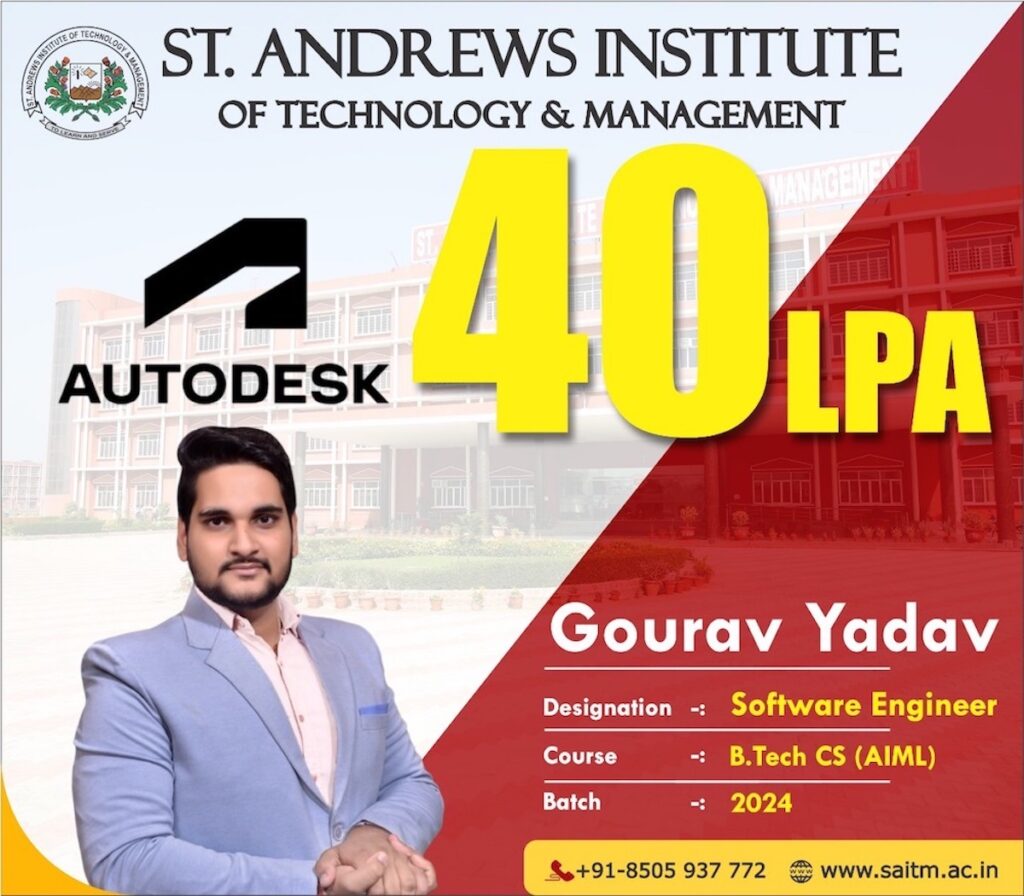
Bachelor of Technology (BTech) graduates have diverse career opportunities across various industries. When considering B Tech How Many Years, they can pursue roles in engineering, technology, management, and research, among others. Tech graduates from BTech programs are highly sought after in various industries for their specialized skills and knowledge.
Here’s a detailed overview of job profiles and recruiters for BTech graduates:
Job Profiles for BTech Graduates
Software Developer/Engineer
Responsibilities
Designing, coding, and testing software applications. Collaborating with cross-functional teams to define and implement new features.
Skills Required
Proficiency in programming languages (Java, C++, Python), problem-solving, Application development lifecycle understanding.
Industries
IT companies, tech startups, finance, healthcare, e-commerce.
Data Scientist/Analyst
Responsibilities
Analyzing complex data sets to derive insights, developing predictive models, and visualizing data.
Skills Required
Statistical analysis,ML, data visualization, programming (R, Python).
Industries
Technology, finance, healthcare, marketing.
Network Engineer
Responsibilities
Designing and implementing network configurations, troubleshooting network issues, ensuring network security.
Skills Required
Network protocols, routing, switching, network security.
Industries
IT services, telecommunications, government agencies, financial institutions.
Cybersecurity Analyst
Responsibilities
Protecting computer systems and networks from cyber threats, performing security assessments, implementing security measures.
Skills Required
Cryptography, ethical hacking, network security, risk assessment.
Industries
IT services, financial institutions, government, defense.
Embedded Systems Engineer
Responsibilities
Developing embedded software and hardware for devices, testing and debugging embedded systems.
Skills Required
Embedded C/C++, real-time operating systems, hardware-software co-design.
Industries
Consumer electronics, automotive, healthcare, industrial automation.
AI/Machine Learning Engineer
Responsibilities
Developing AI models and algorithms, implementing ML solutions, working with big data.
Skills Required
ML, deep learning, programming (Python, TensorFlow), data analysis.
Industries
Technology, automotive, healthcare, research institutions.
IT Consultant
Responsibilities
Advising organizations on IT strategies and solutions, implementing IT systems, ensuring technology aligns with business goals.
Skills Required
IT strategy, project management, business analysis.
Industries
Consulting firms, large corporations, IT services companies.
Project Manager
Responsibilities
Planning and executing projects, managing project teams, ensuring projects are completed on time and within budget.
Skills Required
Project management, leadership, communication, risk management.
Industries
Construction, IT, engineering, manufacturing.
Quality Assurance (QA) Engineer
Responsibilities
Testing software to identify bugs and issues, ensuring software meets quality standards, automating test processes.
Skills Required
Software testing, test automation, attention to detail.
Industries
IT companies, tech startups, manufacturing, finance.
Research Scientist
Responsibilities
Conducting research in various fields of engineering and technology, publishing findings, developing new technologies.
Skills Required
Research methodologies, technical writing, innovation.
Industries
Research institutions, universities, technology companies.
Top Recruiters for BTech Graduates
IT and Software Companies
Companies
Infosys, TCS, Wipro, HCL, Cognizant.
Roles
Software Developer, QA Engineer, IT Consultant.
Tech Giants
Companies
Google, Microsoft, Amazon, Facebook, Apple.
Roles
Software Engineer, Data Scientist, AI Engineer.
Consulting Firms
Companies
Deloitte, Accenture, PwC, EY, KPMG.
Roles
IT Consultant, Project Manager, Business Analyst.
Financial Services
Companies
Goldman Sachs, JP Morgan Chase, Morgan Stanley, Barclays.
Roles
Software Developer, Data Analyst, Cybersecurity Analyst.
Telecommunications
Companies
Cisco, Ericsson, Nokia, Bharti Airtel, Reliance Jio.
Roles
Network Engineer, Telecommunications Engineer, Embedded Systems Engineer.
Automotive and Manufacturing
Companies
Tata Motors, Mahindra & Mahindra, Maruti Suzuki, Bosch, Siemens.
Roles
Embedded Systems Engineer, AI Engineer, Research Scientist.
Healthcare and Pharmaceuticals
Companies
Philips Healthcare, GE Healthcare, Dr. Reddy’s Laboratories, Johnson & Johnson.
Roles
Data Scientist, Embedded Systems Engineer, Research Scientist.
Government and Public Sector
Organizations
ISRO, DRDO, BHEL, Indian Railways.
Roles
Research Scientist, Network Engineer, Cybersecurity Analyst.
Startups
Focus
Emerging tech, innovative solutions, dynamic work environment.
Roles
Software Developer, AI Engineer, Data Scientist.
Educational Institutions
Focus
Research and teaching.
Roles
Research Scientist, Assistant Professor, Lab Technician.
Salary Prospects for BTech Graduates
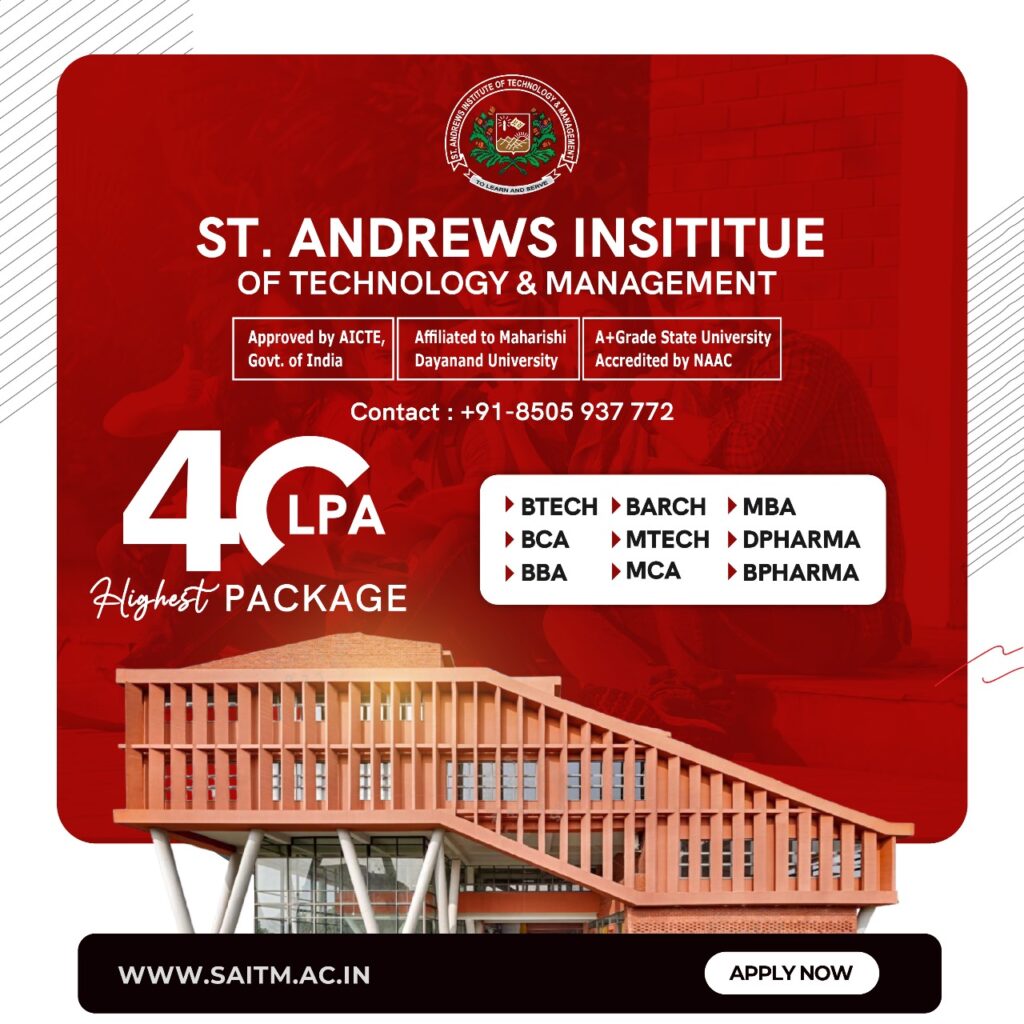
Entry-Level Salaries
Software Engineering
₹3,00,000 to ₹8,00,000 per annum.
Data Science and Analytics
₹4,00,000 to ₹10,00,000 per annum.
Networking and Security
₹3,50,000 to ₹7,00,000 per annum.
Embedded Systems and IoT: ₹3,00,000 to ₹6,00,000 per annum.
AI and ML
₹5,00,000 to ₹12,00,000 per annum.
Mid-Level Salaries (5-8 years of experience)
Application Development
₹8,00,000 to ₹15,00,000 per annum.
Data Science and Analytics
₹10,00,000 to ₹20,00,000 per annum.
Networking and Security
₹7,00,000 to ₹12,00,000 per annum.
Embedded Systems and IoT
₹6,00,000 to ₹12,00,000 per annum.
AI and ML
₹12,00,000 to ₹25,00,000 per annum.
Senior-Level Salaries (10+ years of experience)
Application Development
₹15,00,000 to ₹30,00,000+ per annum.
Data Science and Analytics
₹20,00,000 to ₹40,00,000+ per annum.
Networking and Security
₹12,00,000 to ₹25,00,000 per annum.
Embedded Systems and IoT
₹12,00,000 to ₹22,00,000 per annum.
AI and ML
₹25,00,000 to ₹50,00,000+ per annum.
Factors Influencing Salary
Geographical Location
Salaries in metropolitan areas and tech hubs are generally higher.
Industry Demand
High demand sectors like AI and data science often offer higher salaries.
Company Size
Larger companies or tech giants tend to provide better compensation packages.
Educational Background
Graduates from top institutions or with advanced degrees may command higher salaries.
Additional Considerations
Job Growth
Technology and engineering fields are expected to grow, with emerging technologies creating new job opportunities.
Skill Development
Continuous learning and skill enhancement can lead to career advancement and increased earning potential.
Skills Required for BTech Students
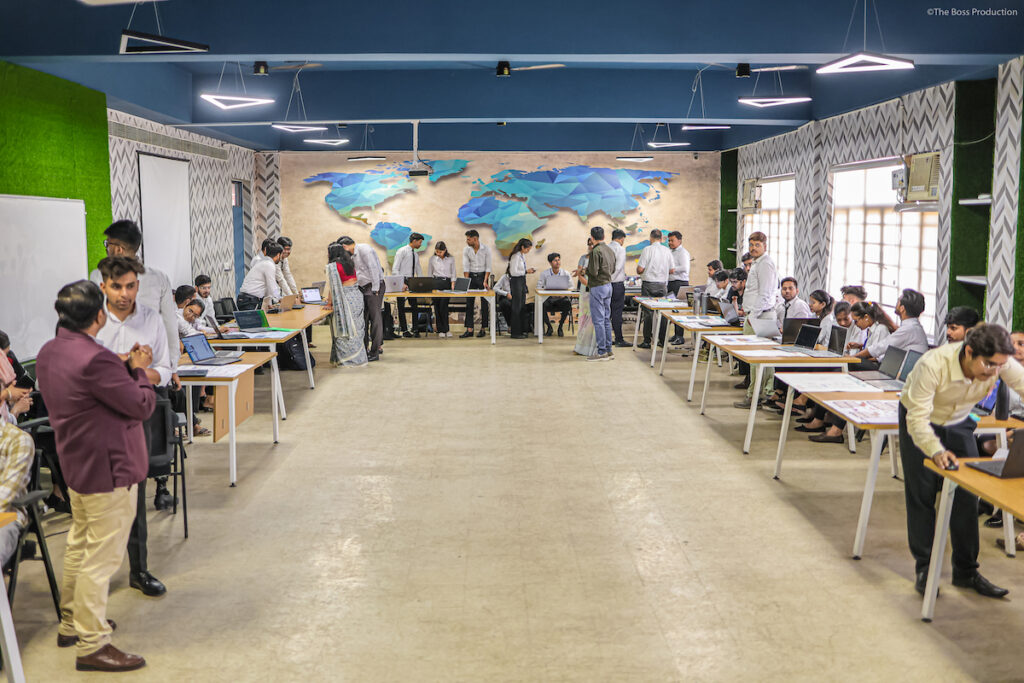
To thrive in a Bachelor of Technology (BTech) program and be successful in the engineering field, students need a diverse set of skills. When considering B Tech How Many Years, these skills span technical, analytical, and interpersonal domains.
Here’s a comprehensive overview:
Technical Skills
Programming and Coding
Proficiency in Programming Languages
Familiarity with languages such as C, C++, Java, Python, or others depending on the specialization.
Understanding Algorithms and Data Structures
Essential for problem-solving and efficient Application development.
Core Engineering Knowledge
Mathematics
Strong grasp of calculus, linear algebra, differential equations, and probability for analyzing engineering problems.
Fundamentals of Engineering Disciplines
Knowledge in core areas like thermodynamics, mechanics, electronics, or material science depending on the specialization.
Domain-Specific Skills
Software Development
Experience with the Application development lifecycle, including coding, debugging, and testing.
Embedded Systems
Understanding of microcontrollers, real-time operating systems, and hardware-software integration if relevant.
Use of Tools and Technologies
CAD and Simulation Software
Proficiency in Computer-Aided Design (CAD) tools and simulation software for design and analysis tasks.
Lab Equipment and Instruments
Ability to use laboratory instruments and conduct experiments accurately.
Analytical and Problem-Solving Skills
Critical Thinking
Logical Reasoning
Ability to break down complex problems into manageable parts and analyze them systematically.
Decision Making
Evaluating multiple solutions and choosing the most effective one based on evidence and analysis.
Research Skills
Experimental Design
Designing and conducting experiments to test hypotheses and analyze results.
Data Interpretation
Ability to interpret data from experiments and research to make informed conclusions.
Communication Skills
Written Communication
Technical Writing
Crafting clear and precise documentation, reports, and research papers.
Professional Correspondence
Effective communication through emails and other written forms with peers, professors, and industry professionals.
Oral Communication
Presentation Skills
Ability to deliver clear and engaging presentations on technical topics.
Interpersonal Skills
Communicating effectively in team settings, including listening and providing constructive feedback.
Project Management Skills
Balancing academic workload, projects, and extracurricular activities effectively.
Teamwork and Leadership
Working effectively with team members, understanding roles, and contributing to group projects.
Design Thinking
Applying creative approaches to develop novel solutions to engineering problems.
Practical Skills
Laboratory and Technical Skills
Experimentation
Conducting practical experiments and using lab equipment effectively.
Technical Problem-Solving
Applying theoretical knowledge to solve real-world technical issues.
Digital Literacy
Software Tools
Proficiency with engineering software and tools used for analysis, design, and project management.
Pursuing a Tech Degree Benefits and Scope
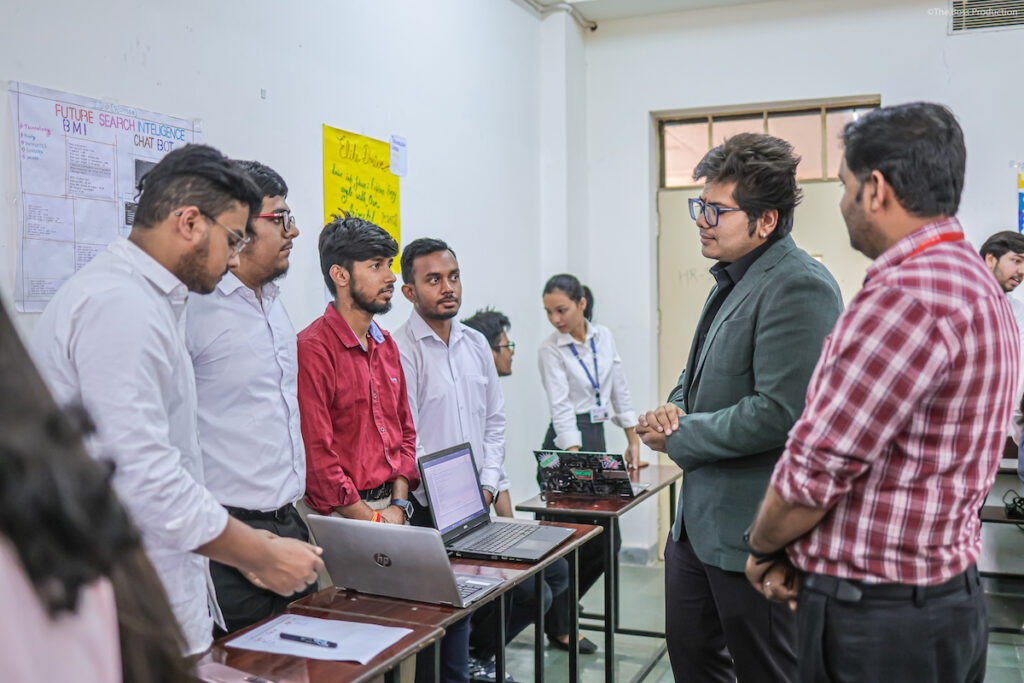
High Demand for Skills
Industry Growth
Technology sectors are rapidly expanding, leading to a high demand for skilled professionals in areas like software development, data analysis, cybersecurity, and network engineering.
Career Opportunities
Graduates have access to a wide array of career options, from startups to multinational corporations, in industries such as IT, finance, healthcare, and manufacturing.
Lucrative Salary Prospects
Competitive Salaries
Tech roles often come with attractive salary packages. Specializations like AI, machine learning, and cybersecurity can command premium compensation.
Career Advancement
With experience, professionals can advance to higher-paying positions, including managerial and executive roles.
Skill Development
Technical Expertise
Students gain in-depth knowledge of programming, system design, network management, and other core areas of technology.
Problem-Solving Abilities
Tech degrees emphasize critical thinking and problem-solving, preparing students to tackle complex technical challenges.
Innovation and Creativity
Cutting-Edge Technologies
Exposure to emerging technologies like AI, IoT, and blockchain fosters innovation and creative problem-solving.
Entrepreneurial Opportunities
A tech degree provides the foundation for starting tech ventures or contributing to innovative projects.
Global Opportunities
International Demand
Tech professionals are in demand globally, offering opportunities to work in diverse environments and countries.
Remote Work
Many tech roles offer flexibility, including options for remote work or freelancing.
FAQs
What is the full form of BTech?
The full form of BTech is Bachelor of Technology.
What is the duration of a BTech course?
The duration of a BTech course is four years, divided into eight semesters.
What are the specialisations available in BTech?
Popular specializations in BTech include mechanical engineering, electrical engineering, electronics engineering, biotechnology, computer science engineering, and more. When considering B Tech How Many Years, these programs typically have a standard duration but can vary based on the institution.
How many years does a BTech course typically last?
A Bachelor of Technology (BTech) course typically lasts for 4 years. It is structured into eight semesters, with each semester lasting about six months.
Can the duration of a BTech course be extended?
Yes, the duration of a BTech course can be extended if a student fails to clear required subjects or needs additional time to complete the degree requirements. When considering B Tech How Many Years, extensions vary by institution and individual circumstances.
Are there any accelerated BTech courses available?
Some institutions may offer accelerated or fast-track BTech courses that can be completed in less than four years. When considering B Tech How Many Years, these programs often require a heavier course load or advanced standing based on prior academic credit.
Do BTech courses offer part-time options?
Yes, some universities and institutions offer part-time BTech courses, which typically extend the duration beyond the standard four years to accommodate students who are working or have other commitments.
How does the duration of a BTech course compare to other engineering degrees?
The BTech course duration is generally similar to other engineering degrees like BE (Bachelor of Engineering), which also typically lasts for four years. However, course structures and elective options may differ.
Are there any special BTech courses with varying durations?
Yes, some institutions offer specialized BTech courses, such as integrated BTech-MTech programs or dual-degree programs, which may have different durations. When considering B Tech How Many Years, an integrated BTech-MTech program might take five years to complete.
How does the duration of a BTech course affect job prospects?
The standard four-year duration of a BTech course provides sufficient time to acquire the necessary knowledge and skills for the job market. When considering B Tech How Many Years, extending the duration due to additional coursework or internships can also enhance job prospects by providing more experience.
Can students take a break during their BTech studies?
Students can often take a break or gap year during their BTech studies, though this may extend the overall duration of the program. When considering B Tech How Many Years, institutions usually have policies in place for students who need to pause their studies for personal or professional reasons.
Do international BTech courses have different durations?
While most international BTech courses are designed to last four years, the duration can vary slightly based on the country and institution. When considering B Tech How Many Years, some programs might have different academic structures or include additional components.
Are there any online or distance learning BTech courses with varying durations?
Yes, online or distance learning BTech courses may have varying durations based on the student’s pace and the program’s flexibility. When considering B Tech How Many Years, these programs often allow students to complete coursework at their own speed, impacting the overall duration.

